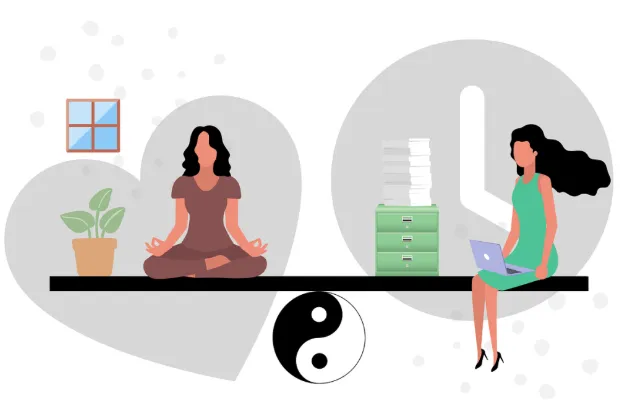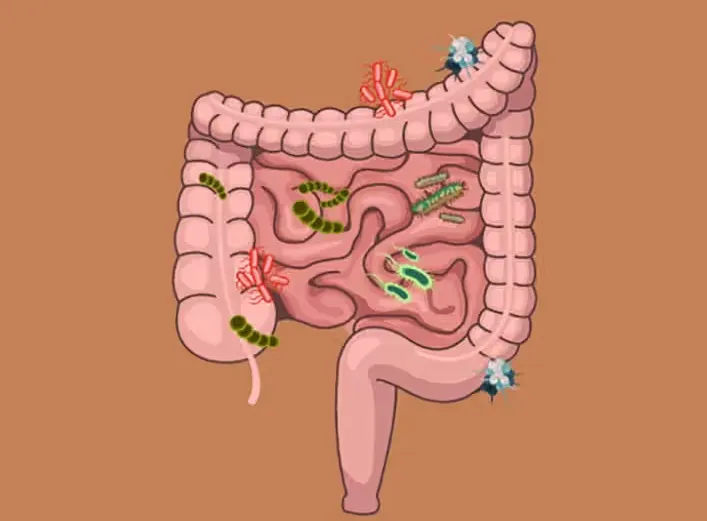Sleep is one of the most vital yet undervalued aspects of human health. While the demands of modern life often encourage us to cut corners on sleep, research underscores the importance of quality rest in maintaining physical, mental, and emotional well-being. The science of sleep reveals that rest is not just a passive state but an active and complex process essential for overall health. This article explores the mechanics of sleep, its importance, and evidence-based strategies to improve sleep quality for a healthier life.
Understanding Sleep: The Basics
Sleep is a natural, recurring state characterized by reduced interaction with the environment, decreased physical activity, and altered consciousness. It is regulated by two primary systems:
- Circadian Rhythm
Often referred to as the “biological clock,” the circadian rhythm is a 24-hour cycle that governs various physiological processes, including sleep-wake cycles. It is influenced by external cues such as light, darkness, and temperature. When aligned with the natural day-night cycle, it helps maintain consistent sleep patterns. - Sleep Pressure (Homeostatic Drive)
Sleep pressure builds up the longer you stay awake. Adenosine, a chemical in the brain, accumulates during wakefulness and promotes sleepiness. High levels of adenosine signal the need for rest, and this pressure is relieved during sleep.
Sleep occurs in two main stages: non-rapid eye movement (NREM) sleep and rapid eye movement (REM) sleep. These stages cycle multiple times during the night, each serving critical roles in physical restoration, memory consolidation, and emotional processing.
The Importance of Quality Sleep
- Physical Health
During sleep, the body repairs and regenerates tissues, builds bone and muscle, and strengthens the immune system. Chronic sleep deprivation is linked to numerous health issues, including:- Cardiovascular diseases
- Obesity
- Diabetes
- Weakened immunity
- Cognitive Function
Sleep is essential for cognitive processes such as attention, learning, problem-solving, and decision-making. It supports memory consolidation, allowing the brain to process and store information acquired during the day. - Emotional Well-Being
Poor sleep can lead to mood swings, irritability, and heightened stress levels. Over time, it increases the risk of mental health disorders, including anxiety and depression. - Longevity
Studies show that individuals who consistently sleep well tend to live longer, healthier lives. Sleep deprivation accelerates cellular aging and increases the risk of chronic illnesses.
Common Sleep Disorders
Millions of people suffer from sleep disorders that compromise rest quality. Some common conditions include:
- Insomnia: Difficulty falling or staying asleep.
- Sleep Apnea: Interrupted breathing during sleep due to airway obstruction.
- Restless Legs Syndrome (RLS): An uncontrollable urge to move the legs during rest.
- Narcolepsy: Excessive daytime sleepiness and sudden sleep attacks.
If sleep problems persist, consulting a healthcare professional is crucial for diagnosis and treatment.
Strategies to Improve Sleep Quality
- Optimize Your Sleep Environment
- Keep It Dark: Use blackout curtains or an eye mask to block out light.
- Maintain a Comfortable Temperature: A cool, quiet, and well-ventilated room promotes better sleep.
- Invest in Quality Bedding: A supportive mattress and pillows tailored to your sleep position can make a significant difference.
- Establish a Consistent Sleep Schedule
Going to bed and waking up at the same time daily helps regulate your circadian rhythm. Even on weekends, maintaining this schedule ensures better rest. - Limit Exposure to Blue Light Before Bed
Blue light from screens (phones, tablets, and computers) disrupts melatonin production, a hormone crucial for sleep. Consider using blue-light-blocking glasses or switching to night mode on devices. - Create a Relaxing Bedtime Routine
Engage in calming activities before bed, such as reading, meditating, or taking a warm bath. Avoid stimulating activities that may increase alertness. - Monitor Your Diet
- Avoid Heavy Meals Before Bed: Eating large, rich, or spicy foods can cause discomfort and disrupt sleep.
- Limit Caffeine and Alcohol: Both substances can interfere with sleep quality, even if consumed hours before bedtime.
- Stay Hydrated: Dehydration can disrupt sleep, but avoid excessive water intake close to bedtime to prevent nighttime awakenings.
- Exercise Regularly
Physical activity promotes better sleep by reducing stress and anxiety and tiring the body. However, avoid vigorous exercise close to bedtime, as it may have the opposite effect. - Practice Stress Management
Stress and anxiety are leading causes of sleep problems. Techniques such as mindfulness meditation, deep breathing, or journaling can help calm the mind and prepare you for sleep. - Use Sleep Aids Wisely
Over-the-counter or prescription sleep aids can be helpful for short-term use but are not recommended as a long-term solution. Natural remedies like melatonin supplements or herbal teas (e.g., chamomile or valerian root) may also improve sleep. - Limit Naps
While short naps (10–20 minutes) can boost alertness and energy, long or late-afternoon naps may interfere with nighttime sleep.
The Role of Technology in Sleep Improvement
Innovations in technology offer tools to track and enhance sleep. Wearable devices, smart mattresses, and apps can monitor sleep patterns, providing insights into sleep quality and duration. Some popular sleep apps feature guided meditations, soothing sounds, and personalized recommendations to improve rest.
The Dangers of Sleep Deprivation
Chronic sleep deprivation impacts every aspect of life. Its consequences include:
- Impaired Cognitive Function: Reduced alertness, slower reaction times, and poor decision-making.
- Mental Health Issues: Heightened risk of anxiety, depression, and mood disorders.
- Physical Health Risks: Increased likelihood of obesity, heart disease, and weakened immunity.
- Workplace and Driving Hazards: Sleep-deprived individuals are more prone to accidents and errors.
Myths About Sleep
- “I Can Catch Up on Sleep Later.”
Sleep debt cannot be fully recovered. Consistent sleep is more beneficial than sporadic long sleeps. - “I Only Need Five Hours of Sleep.”
While some individuals may function on less sleep, most adults require 7–9 hours for optimal health. - “Alcohol Helps Me Sleep.”
Although alcohol may induce drowsiness, it disrupts REM sleep and leads to poor-quality rest.
The Future of Sleep Science
Ongoing research continues to uncover the intricacies of sleep. Advances in neuroscience, genetics, and technology promise a deeper understanding of sleep disorders and innovative treatments. Personalized sleep medicine, tailored to an individual’s unique biology and lifestyle, may soon become a reality.
Conclusion
Sleep is a cornerstone of health, as vital as diet and exercise. Understanding the science of sleep empowers us to prioritize rest and make informed choices for better well-being. By adopting evidence-based strategies, optimizing sleep environments, and embracing healthy routines, we can harness the full benefits of quality sleep. Remember, better sleep is not just a luxury—it is essential for a healthier, happier, and more productive life.



